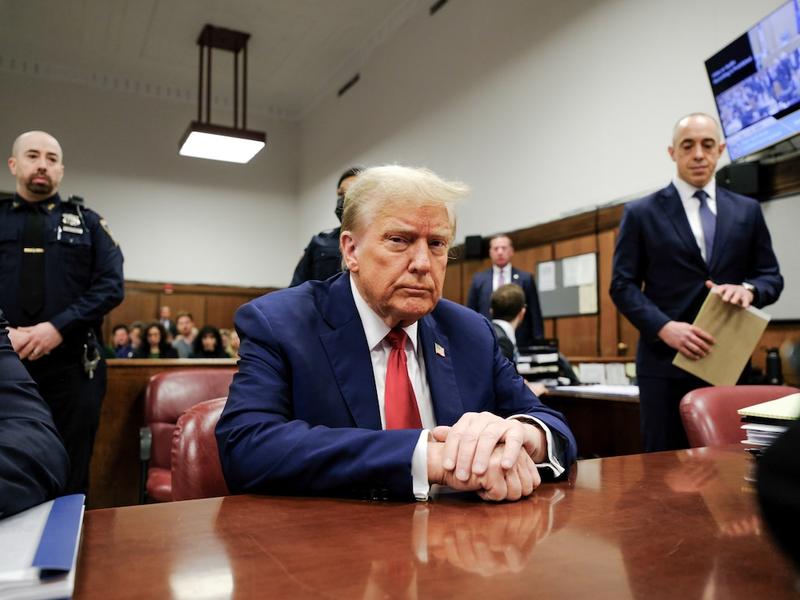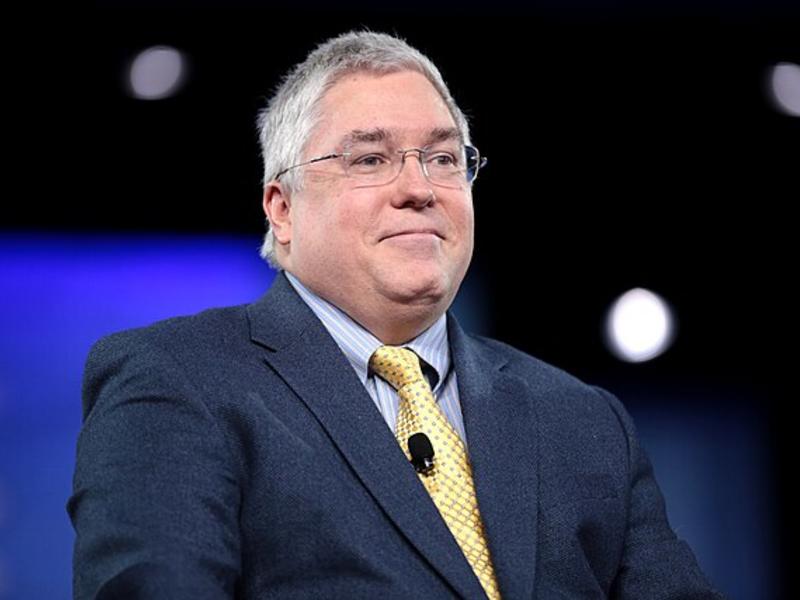
For years, the two political parties held immense political power. They had money (soft dollars) and influence (access to deep-pocketed donors, PAC's and media). They set many of the campaign rules (think things like superdelegates and the presidential primary calendar). But, over the last 20 years, their power has ebbed considerably. Soft money was replaced by SuperPACs whose donors cared not so much about the long-term health of the party, but about their immediate (usually ideological) concerns. Recruiting candidates who 'fit the district' is no longer as important as finding a candidate who can win a primary. As one GOP consultant told me the other day, "accomplishments have never meant less in a Republican primary than now." Instead, said this person, these primary battles are "more about conviction and grievance."
On Tuesday, Rep. Liz Cheney, the third most powerful member of the House GOP conference, announced her support for impeachment, and Senate Majority Leader Mitch McConnell, the New York Times reported, was open to seeing conviction in the Senate.
For the next few hours, it felt as if we were all dropped into a political science experiment to test whether the party — with Cheney and McConnell as its leaders — could wrest its power back. Could they convince their colleagues that the long-term risks to the party in sticking by Trump were more salient, more profound and more important than the short term risks of primary challenges or angry calls to their offices?
At the end of the day, only nine GOP House members fell in line behind Cheney. The rest stood with Trump. A number of GOPers, including Minority Leader Kevin McCarthy, called out the president for his role in the attack on the Capitol and said they were willing to censure him, but that impeachment — especially one done in such a rushed manner — was a bridge too far.
The House's outcome bodes poorly for a conviction in the Senate, where Republicans would need to deliver 17 votes.
In the past, a party tried to move on from their presidential losers quickly. Democrats spent years trying to rebrand themselves after Pres. Jimmy Carter's one-term tenure. Republicans host primary debates at the Ronald Reagan Presidential Library in Simi Valley, California, not the Richard M. Nixon library two hours down the road in Yorba Linda.
However, at this point, a significant number of Republican members are happy, and the rest seemingly resigned to the fact that the party will remain tied at the hip with Trump.
There's also a belief among most Republicans that in a few weeks, it will be business as usual. After all, that's been the experience of the last four years. Nothing it seems — not life-altering events like a global pandemic or economic collapse, nor the norm-busting behavior of Pres. Trump — made any significant dent in our country's polarization. Sure, Trump lost re-election, but it was not the landslide 'reckoning' that many had expected (or hoped). Meanwhile, proclamations of a GOP "split" remain premature. The party coalesced around Trump in 2016. And, they did so again in 2020.
In 2021-2022 the unifier will be Democrats. Republicans expect to see Democrats over-reach on policy and procedure as they did the last two times they had unified control of Washington in 1993-94 and 2009-2010. As one GOP strategist said to me the other day, Republicans in the House are really good at being in the minority. Plus, they know that the Democrats' thin majority means Speaker Pelosi has very little margin for error. We expect to see attacks on 'socialism,' 'defunding the police,' and 'cancel culture' play a starring role once again in GOP ads this upcoming midterm.
However, these narrow majorities also make it harder for Pelosi and Schumer to push for — or pass — big-ticket agenda items. Plus, while Bill Clinton and Barack Obama campaigned as agents of change, Biden promised a return to normalcy.
More important, with Democrats in control of both chambers, Republicans have to brace for an unending series of hearings on issues that could put them on the defensive. Moreover, as the FBI and other law enforcement agencies release more information about the Capitol attack, the decision by many Republicans to stick with their votes to decertify Biden's electoral college wins and/or object to Trump's removal from office, could become a huge liability.
Another driving factor for many GOPers is the worry that Trump will continue to wield enormous influence over the party. Given our experience over the last four years, that seems like a pretty good bet. But, Trump leaves the White House with tremendous legal and financial liabilities. His brand — hotels, golf courses, and other properties — are being shunned by corporate leaders. His access to a digital bully pulpit (Twitter and Facebook), has been cut off. No one knows what sort of legal actions will be taken in New York by election time in 2022.
Then there's the fear that he will use his vaunted war chest — he's reportedly raised tens of millions for his newly formed "Save America" PAC — as a cudgel or a carrot in GOP primaries next year. But, given the fact that Trump has been reticent to use his resources to help other GOP candidates during his time in office, it's hard to believe he's going to spend it on others once he's out of office.
While we have no idea what 2021 will bring, we can be certain that the pandemic will continue to be the major overhang. In fact, the most unifying thing that Pres.-elect Biden can do is to get the vaccine distributed to as many people as efficiently, transparently, and safely as possible. Getting COVID under control will do more to turn down the heat and animosity in our politics than any speech could do. One of the best ways to restore faith in our institutions is to show them actually working.
In their book "Presidents, Populism, and the Crisis of Democracy," political scientists William Howell of the University of Chicago and Terry Moe of Stanford and the Hoover Institute, argue that what has allowed populism to flourish is a combination of unrelenting "socioeconomic forces now pounding the modern era" such as globalization, technological innovation and cultural diversity, and "ineffective government." They write: "American democracy can be saved and made more secure, but the challenge of making that happen is the challenge of building a more effective government."
In 2016, Donald Trump revealed just how little influence the party has in not only selecting its nominee but in defining itself. The question going forward is whether a party can continue to survive tethered to a personality instead of a platform.










Subscribe Today
Our subscribers have first access to individual race pages for each House, Senate and Governors race, which will include race ratings (each race is rated on a seven-point scale) and a narrative analysis pertaining to that race.